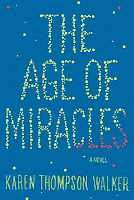Are you tired of feeling like you don't have enough time to read over the holidays? Are you hesitant to join in other read-a-thons because reading for 24 hours straight makes you want to throw things (probably books, and we all know that's not cool)? Are you feeling like a nice Saturday afternoon at the beginning of the year might be just The Thing to get you motivated to finish all the holiday chocolates and eggnog in your house so you can start fresh with healthy food for the New Year?
WELL THEN.
The GIF Admiration Society cordially invites you to partake in a truly excellent new thing we made up on the Twitter:
 |
| Thanks for the spiffy logo, Alice's brother! |
Here are the Mini-Guidelines:
1) Your reading choices should somehow follow the "mini" theme. This can be interpreted any way you choose and part of the fun will be defending any iffy choices in the comments of your posts. Is your book tiny? Great! But let's go further, because tiny books do not take 8 hours to read and are generally novelty items.
Does your book contain any of the following:
- Dwarves?
- Goblins (*coughhaveyoujoinedAlice'sHarryPotterRead-a-longyetcough*)?
- Children?
- Small animals?
What I'm saying is, make your case!
2) Your snack choices may-or-may-not adhere to the "mini" theme. Some suggestions from the GIF-AS ladies include:
- SHOTS. Otherwise known as "mini-cocktails"
- Mini puff pastries from Trader Joe's
- Mini tacos from Trader Joe's
- Mini pizzas from... anywhere, really
- Those small corn chips - Tostitos maybe?
- Mini M&M's (unless you live in England, sorry Laura! Except I'm not because you get to visit places like Bath and Yorkshire and get to eat real Cadbury's, so
Anyway, you all get the point, right? Mini food. Excellent!
3) We shall read and snack and chatter amongst ourselves for EIGHT GLORIOUS HOURS! There will be a mid-'thon check-in around hour 4, and then of course a wrap-up if you choose.
We begin, my mini-dumplings, at 8:00am Pacific time on Saturday, January 5!











.JPG)

.JPG)



































